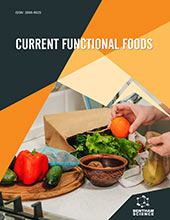
Full text loading...
Mango, known as “the king of fruits,” is one of the most popular fruits on the planet. Vitamins, minerals, antioxidants, and bioactive substances abound.
In the present review, we aimed to explore the therapeutic effects of mango as an antioxidant.
Scopus and ScienceDirect databases were used to gather research papers over the previous 12 years.
Our research explores the formidable antioxidant potential of mango, driven by its elevated phenolic and flavonoid content. Within mango, crucial metabolites such as glutathione and euxanthone contribute significantly to its antioxidant and anti-inflammatory prowess. A noteworthy bioactive compound, Mangiferin, found in mango, exhibits anti-diabetic properties by inhibiting sucrase and isomaltase, consequently reducing glucose absorption in the intestine.
In our study, mango has demonstrated its ability to lower blood sugar levels, enhance insulin production, and reduce lipid levels. These beneficial effects are attributed to high soluble fiber, polyphenols, and carotenoids, including quercetin and beta-carotene. Our findings shed light on the multifaceted health-promoting attributes of mango, positioning it as a valuable natural resource for potential dietary interventions and health enhancement. In conclusion, effective blood sugar management hinges on strategic dietary decisions. Steering clear of high-glycemic combinations with mangoes, choosing daytime consumption, and integrating regular physical activity for energy equilibrium is paramount.

Article metrics loading...

Full text loading...
References


Data & Media loading...

